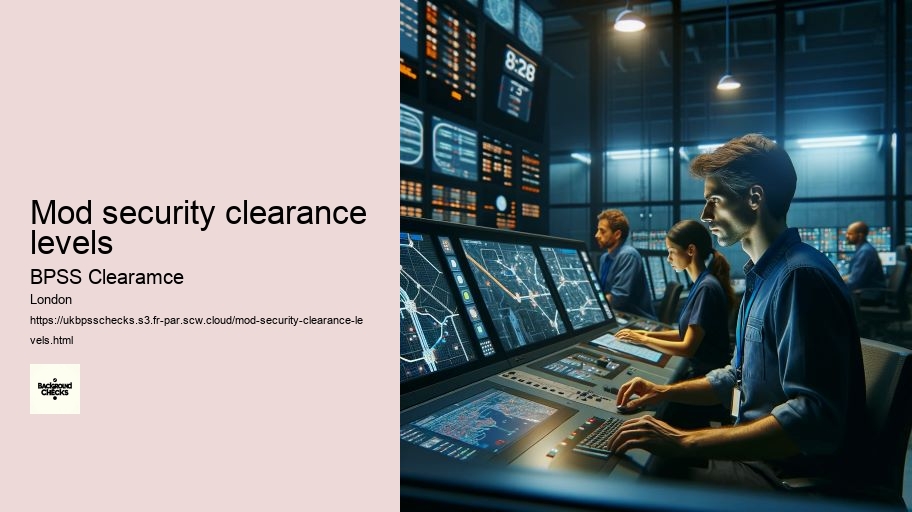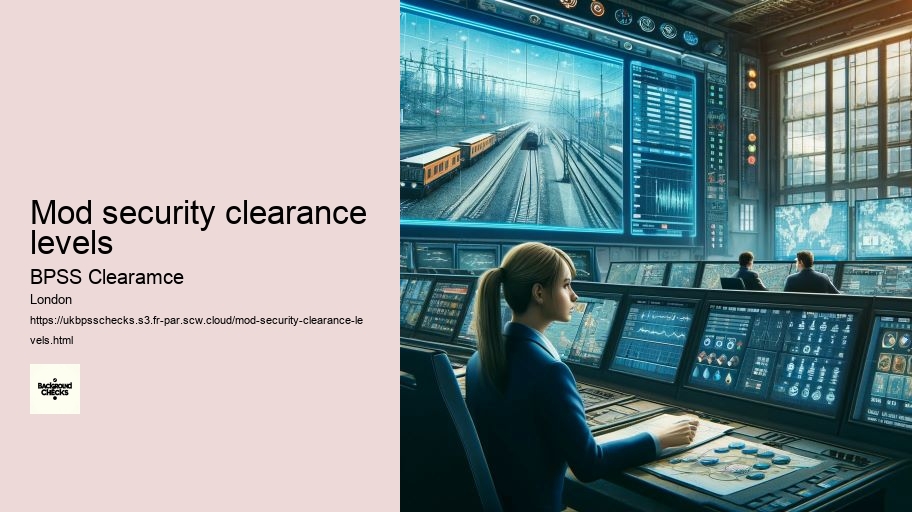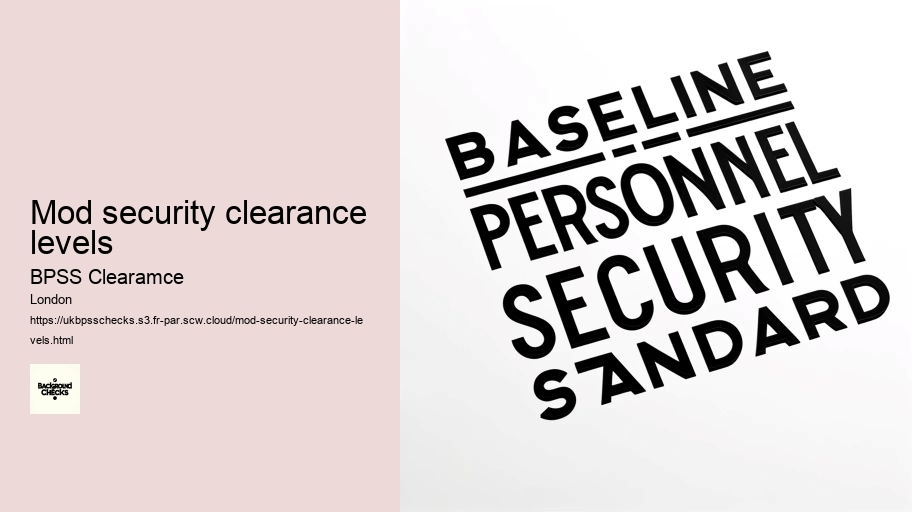
Although the right to work is typically verified at the start of employment as part of BPSS checks, it may need to be reverified if an individual’s circumstances change, such as the expiration of a visa or changes in immigration status. Continuous monitoring ensures ongoing compliance with legal requirements and maintains the integrity of the workforce.
For roles where exposure to SECRET and TOP SECRET information is possible, BPSS clearance becomes even more significant in safeguarding classified data. Additionally, government contracts frequently require BPSS checks as a preventive measure to enhance security measures.
A key component of the BPSS check is the verification of documents, which can be time-consuming. Verifying identity and right to work involves checks against databases and sometimes contacting issuing authorities, especially if there are concerns over the authenticity of the documents.
In conclusion, the right to work check is a fundamental part of BPSS checks in the UK, ensuring legal compliance and upholding high security standards within organizations. This process not only supports the legal operation of businesses but also protects against potential security risks associated with unauthorized employment.
AI and machine learning are increasingly being integrated into the BPSS process, enabling predictive analytics to assess risks associated with certain profiles or patterns. This proactive approach helps organizations preempt potential security risks before they become problematic by analyzing trends and behaviors gleaned from past BPSS checks.
BPSS checks typically include four main elements: identity verification, employment history check, right to work confirmation, and a basic criminal record check. These components ensure that the individual is appropriately vetted for security-sensitive positions but do not delve into extensive criminal history unless necessary for the role.

DBS checks are available in three levels: Basic, Standard, and Enhanced. Each level provides a different depth of information, with Enhanced DBS checks including checks against the barred lists and additional information held by local police that’s relevant to the role being applied for. This is more comprehensive compared to the simpler criminal record check involved in BPSS.
When undergoing a BPSS check, you're subjected to a thorough screening process to confirm your trustworthiness and eligibility for accessing sensitive information. This screening, which is a baseline personnel security standard in the UK, includes checks like Basic DBS Check, ID Check, Right to Work check, and 3-Year Employment History Check.
Alongside these, national identity cards or residence permits may also be accepted to establish your identity accurately. It's imperative to make sure that the identification documents you provide are original, unexpired, and legitimate.
A criminal record check is conducted to ascertain if the individual has any convictions that might be relevant to their suitability for the position. For BPSS checks, this usually involves a basic disclosure that reveals unspent convictions, providing an insight into the individual's legal compliance and integrity.
DBS checks, on the other hand, are regulated by the Home Office and are designed to prevent unsuitable people from working with vulnerable groups.
The legal underpinning of BPSS clearance in the UK, though not defined by a single piece of legislation, is supported by a variety of laws and regulations that govern national security, data protection, and employment. This legal framework ensures that BPSS checks are conducted in a manner that is secure, ethical, and compliant with the broader objectives of national security and public safety.


From a security perspective, the right to work check is foundational in the BPSS process because it ensures that individuals are not only legally employed but also properly vetted. Illegal workers may pose a security risk as they might have circumvented the usual checks and processes designed to protect sensitive information and environments. Ensuring that all employees have been thoroughly checked and are legally allowed to work helps maintain the security standards necessary for sensitive roles, particularly in government and defense.
2. **Automation and Digital Platforms:** Look out for the adoption of automation and digital tools to streamline the BPSS clearance process, enhancing efficiency.
Navigating the BPSS process can pose challenges, particularly when verifying identity and employment history manually.
4. **AI Integration:** The integration of artificial intelligence and machine learning is likely to improve the effectiveness of BPSS checks, enhancing overall security measures.
The identity verification process is a crucial part of BPSS checks.
In some cases, BPSS checks can encounter delays if discrepancies or issues need to be resolved, such as gaps in employment or discrepancies in personal information. Such issues require additional investigation and possibly further documentation, which can prolong the process.

Organizations that implement BPSS clearance as part of their security protocols benefit from a standardized approach to vetting that is recognized across various sectors. This standardization helps in maintaining a consistent security posture regardless of the specific nature or location of the job.
While the typical duration for a BPSS check ranges from two weeks to a month, it's important for both employers and candidates to be prepared for variations based on the factors discussed. Employers should manage expectations and provide candidates with as much information as possible about what to expect during the BPSS clearance process to ensure a smooth and efficient vetting experience.
For individuals seeking BPSS clearance, organizations may conduct additional inquiries to explore further into various aspects of their background and history. These additional investigations could involve checks on overseas travel history for periods exceeding 6 months within the last 3 years.
BPSS stands for "Baseline Personnel Security Standard." It's essentially a basic level of security clearance required for individuals working in roles that involve access to sensitive information or facilities, especially in the public sector. The BPSS checks typically include identity verification, employment history checks, and criminal record checks.
No, BPSS (Baseline Personnel Security Standard) and DBS (Disclosure and Barring Service) are not the same.
BPSS (Baseline Personnel Security Standard): This is a set of government guidelines in the United Kingdom for ensuring the security clearance of individuals working with sensitive information or in certain roles. It is a basic level of security clearance and involves checks such as identity verification, employment history, and criminal record checks. BPSS is often required for roles in both the public and private sectors where access to sensitive information or facilities is involved.
DBS (Disclosure and Barring Service): This is a government agency in the UK that performs checks on individuals working with children or vulnerable adults. The DBS conducts criminal record checks (previously known as CRB checks) to help organizations make safer recruitment decisions by identifying candidates who may be unsuitable for certain roles due to past criminal convictions, cautions, reprimands, or warnings.
While both BPSS and DBS involve background checks, they serve different purposes and are used in different contexts. BPSS focuses on security clearance for a broader range of roles, including those involving access to sensitive information, while DBS specifically focuses on roles involving work with vulnerable groups.
The Baseline Personnel Security Standard (BPSS) checks typically include:
Identity Verification: Verifying the identity of the individual through official documents such as passports, driver's licenses, or other government-issued identification.
Employment History Checks: Verifying the individual's employment history to ensure accuracy and assess their suitability for the role.
Criminal Record Checks: Checking for any criminal convictions or cautions. This is often done through a Basic Disclosure from the Disclosure and Barring Service (DBS) in England and Wales, Disclosure Scotland in Scotland, or AccessNI in Northern Ireland.
Verification of Address: Verifying the individual's current and previous addresses to ensure accuracy and completeness of their background information.
These checks are aimed at establishing a baseline level of trustworthiness and suitability for individuals working in roles that require access to sensitive information or facilities, particularly within the public sector but also in some private sector positions.
A valid proof of address for a Baseline Personnel Security Standard (BPSS) check typically includes official documents that clearly display the individual's name and current address. Common examples of acceptable proof of address documents may include:
Utility Bills: Recent bills for services such as electricity, gas, water, or landline phone, issued within the last three to six months.
Bank Statements: Recent bank statements, typically issued within the last three to six months, showing the individual's name and address.
Official Letters: Letters from government agencies, local authorities, or financial institutions, such as tax statements, council tax bills, or letters from the Department for Work and Pensions (DWP), which display the individual's name and address.
Tenancy Agreements: A signed and dated rental or lease agreement for accommodation, showing both the tenant's and landlord's details, along with the property address.
Mortgage Statements: Statements from a mortgage provider showing the individual's name and property address, issued within the last three to six months.
It's important to note that the specific requirements for proof of address may vary depending on the organization conducting the BPSS check. Additionally, the document should be recent and not expired, and it should clearly display both the individual's name and current address.
A Baseline Personnel Security Standard (BPSS) check is typically required for individuals working in roles that involve access to sensitive information or facilities, particularly within the public sector but also in some private sector positions. While specific requirements may vary depending on the organization and the nature of the role, BPSS checks are commonly needed for individuals who:
In summary, individuals who require a BPSS check are those whose roles involve a level of trust, responsibility, and access to information or facilities that necessitate verification of their identity, employment history, and suitability for the position.
The Baseline Personnel Security Standard (BPSS) does not have an expiry date like some other security clearances. Instead, it serves as a foundational level of security clearance that establishes an individual's baseline trustworthiness and suitability for roles requiring access to sensitive information or facilities.
However, while the BPSS itself does not expire, organizations may have their own policies regarding the periodic review or renewal of security clearances for their employees. For instance, some employers may require employees to undergo regular rechecks or refreshes of their background checks, including BPSS checks, to ensure that their security clearance remains up to date.
Therefore, although the BPSS clearance itself doesn't have a fixed duration, individuals and organizations should be aware of any policies or requirements related to maintaining and updating security clearances in accordance with best practices and organizational guidelines.